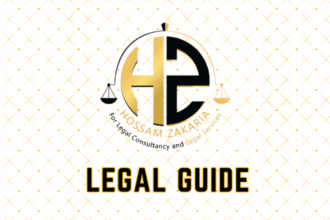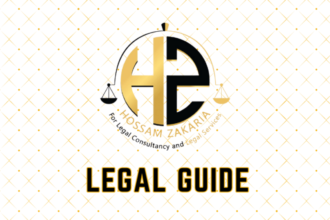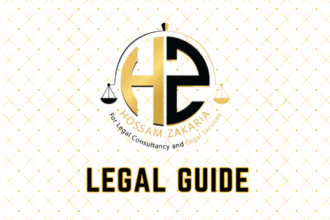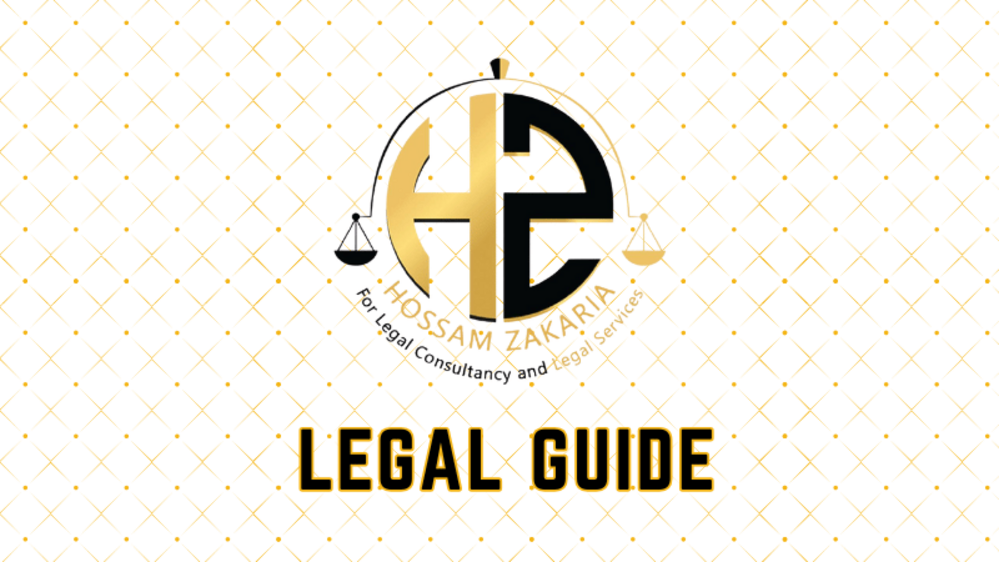Introduction: Understanding Qatar’s Arbitration Law from a UAE Perspective
Recent years have seen a surge in cross-border business activities between Qatar and the United Arab Emirates (UAE), with arbitration emerging as a preferred dispute resolution mechanism. For UAE-based businesses, legal practitioners, and HR managers, mastering the nuances of Qatari arbitration law is now a commercial imperative. Whether contracting with Qatari partners, resolving disputes under Qatar-seated arbitrations, or advising clients on multijurisdictional matters, understanding these laws is essential. Amidst rapid legal evolution in the region, particularly after Qatar’s enactment of Law No. (2) of 2017 Issuing the Law of Arbitration in Civil and Commercial Matters (the ‘Qatar Arbitration Law’ or QAL), UAE stakeholders must re-examine compliance strategies and dispute management frameworks. This article provides a detailed, consultancy-grade analysis of Qatar’s arbitration regime—for UAE-based readers—highlighting recent legal updates, compliance risks, and practical pathways toward robust dispute resolution in 2025 and beyond.
Table of Contents
- Overview of Qatar’s Arbitration Law
- Legal Framework: Key Provisions and Structure
- Comparing Pre-2017 and Post-2017 Arbitration Law in Qatar
- Practical Implications for UAE-Based Businesses
- Risk Analysis and Compliance Strategies
- Case Studies and Real-World Scenarios
- Conclusion and Forward-Looking Recommendations
Overview of Qatar’s Arbitration Law
The practice of arbitration in Qatar has been revolutionized by Law No. (2) of 2017, aligning the legal regime with international best practices and the UNCITRAL Model Law. The QAL governs both domestic and international arbitrations in civil and commercial matters, except for matters specifically excluded (like personal status and criminal matters). The law reaffirms Qatar’s commitment to New York Convention obligations, and provides a robust legislative foundation for neutral, efficient, and enforceable dispute resolution. For UAE stakeholders, this development marks a notable shift from the historically rigid and less sophisticated arbitration environment in Qatar.
Legal Framework: Key Provisions and Structure
Main Sources of Law
The main sources governing arbitration in Qatar are:
- Law No. (2) of 2017 Issuing the Law of Arbitration in Civil and Commercial Matters (QAL)
- The New York Convention on the Recognition and Enforcement of Foreign Arbitral Awards (since 2003)
- Qatari Civil Code, Commercial Code, and procedural laws, where not otherwise regulated by the QAL
The QAL applies to:
- Arbitrations seated in Qatar, unless otherwise agreed
- Arbitrations outside Qatar whose parties agree to apply Qatari law
Key Provisions and Regulatory Features
| Feature | Summary as per QAL |
|---|---|
| Autonomy of Arbitration Agreement | Arbitration agreements must be in writing; parties have strong autonomy to determine language, applicable law, and process (Articles 7, 15, 22). |
| Interim and Conservatory Measures | Tribunals may order interim measures; courts may support or enforce such orders (Articles 18, 28). |
| Arbitral Tribunal Powers | Unless parties agree otherwise, tribunals have wide discretion over procedures, evidence, and the merits (Articles 21–27). |
| Recognition and Enforcement | Final awards are enforceable through Qatari courts, with limited grounds for refusal (Articles 34–36). |
| Set Aside (Annulment) | Challenge limited to narrow grounds, such as incapacity, invalid agreement, improper notice, non-arbitrable matters, or public policy (Article 33). |
Institutional Arbitration in Qatar
The Qatar International Court and Dispute Resolution Centre (QICDRC), Qatar International Arbitration and Conciliation Centre (QIACC), and regional branches of leading arbitral institutions (such as the ICC and LCIA) play active roles, providing rules and administrative support for both ad hoc and institutional arbitrations involving Qatari parties.
Comparing Pre-2017 and Post-2017 Arbitration Law in Qatar
To appreciate the improvement, it is essential to compare the QAL with the prior regime—largely governed by Chapter 13 of Law No. (13) of 1990 promulgating the Civil and Commercial Procedure Law.
| Aspect | Pre-2017 Law (Old Regime) | Post-2017 Law (QAL) |
|---|---|---|
| Model Law Alignment | No, local rules predominated | Substantially based on UNCITRAL Model Law |
| Autonomy and Flexibility | Limited party autonomy, court interference common | Emphasized autonomy, limited court intervention |
| Arbitrator Appointment and Challenge | Appointments and challenges frequently required court involvement | Streamlined under party-agreed procedures |
| Interim Measures | Rarely granted, unclear processes | Explicit tribunal and court powers |
| Award Enforcement | Cumbersome, delays frequent, unpredictable outcomes | Faster, with clear procedures and grounds for refusal per Model Law |
| Annulment (Setting Aside) | Broad, often abused | Limited to Model Law categories |
Practical Implications for UAE-Based Businesses
Drafting Arbitration Clauses: Key Recommendations
For UAE entities entering agreements with Qatari counterparties, the drafting of arbitration clauses is critical. Recent trends in Qatari jurisprudence show strict adherence to formal requirements and party autonomy. The following best practices are recommended:
- Specify the seat of arbitration (e.g., “Doha, Qatar”) to remove ambiguity over the applicable curial law.
- Choose reputable arbitral institutions (such as ICC, QIACC), referencing their rules explicitly.
- State the language of the proceedings to avoid unnecessary disputes and translation costs.
- Define the scope of disputes: clarify whether the clause covers ‘all disputes arising out of or in connection with’ the contract.
- Include provisions on interim relief and the possibility of expedited procedures, if appropriate.
Enforcement Across Borders: UAE and Qatar
Enforcement strategy must be cognizant of the interplay between the New York Convention (to which both UAE and Qatar are parties) and each state’s domestic legal framework. While in principle both countries oblige recognition of qualifying foreign arbitral awards, practical obstacles arise. For UAE businesses wishing to enforce a Qatari award in the UAE, the procedure is anchored in Federal Law No. 6 of 2018 on Arbitration and Cabinet Resolution No. 57 of 2018. Recent court practice reflects a willingness to recognize Qatari-seated awards, provided due process is observed and local public policy is not violated.
Visual Suggestion: Process Flow Diagram
Insert a flow diagram illustrating the steps from arbitration clause drafting, proceedings, award issuance, and cross-border enforcement between Qatar and UAE.
Risk Analysis and Compliance Strategies
Risks of Non-Compliance
Non-compliance with QAL requirements can severely undermine a party’s ability to enforce or rely on arbitration provisions. Common risks include:
| Risk | Consequence | Mitigation Strategy |
|---|---|---|
| Defective Arbitration Agreement | Arbitration clause unenforceable; dispute resolved by court | Legal review to ensure validity, clarity, and writing requirements |
| Improperly Constituted Tribunal | Awards subject to annulment or non-enforcement | Strictly follow agreed appointment procedures |
| Notice/Service Irregularities | Award set aside for lack of due process | Meticulously document notices, adhere to contractual notice mechanisms |
| Award Violates Public Policy | Refusal of enforcement or recognition in Qatar or UAE | Ensure award complies with both Qatari and applicable UAE public policy |
| Failure to Seek Timely Annulment | Loss of right to challenge award | Monitor statutory time limits and act expeditiously |
Compliance Checklist for UAE Multinationals
- Review all existing contracts for arbitration clauses involving Qatari entities
- Undertake annual compliance audits covering dispute resolution protocols
- Engage local or cross-border counsel for contract negotiation and dispute management
- Map out award enforcement procedures in both jurisdictions before arbitrating
- Stay updated with judicial decisions interpreting the QAL, especially any evolving definitions of public policy
Case Studies and Real-World Scenarios
Case Study 1: Construction Consortium Dispute
Scenario: A UAE-headquartered construction company enters a joint venture agreement with a Qatari entity for a major infrastructure project in Doha. The agreement contains an ICC arbitration clause with the seat in Qatar. A dispute arises over payment delays.
Analysis:
- The clear arbitration clause referencing ICC Rules and Doha as the seat ensures that the QAL applies with minimal judicial interference.
- When an interim preservation order is needed, the tribunal can grant it directly—and seek Qatari court support for real property-based remedies.
- If the Qatari party resists enforcement, the ICC award can be enforced directly via Qatari courts under Article 34, unless manifest public policy violation is proven.
Case Study 2: Enforcement in the UAE
Scenario: The ICC tribunal delivers an award in favor of the UAE company. The Qatari party holds assets in the UAE. The prevailing party seeks recognition in the UAE.
Analysis:
- Thanks to both countries’ adherence to the New York Convention and the UAE Arbitration Law (Federal Law No. 6 of 2018), the award can be recognized in the UAE, unless public policy or due process issues exist.
- Cabinet Resolution No. 57 of 2018 provides the process for foreign award recognition. Local counsel must be engaged to file before the competent UAE court.
Case Study 3: Employment Arbitration
Scenario: A UAE-based consultancy delivers digital transformation services for a Qatari government entity. A dispute arises, and the Qatari party invokes sovereign immunity.
Analysis:
- Under QAL, state bodies are not automatically immune if the contract contains an explicit arbitration agreement and proper ministerial approvals are in place.
- However, extra due diligence is necessary to ensure the agreement has the required authorities’ ratification. Failure here could render the arbitration agreement or award unenforceable.
Conclusion and Forward-Looking Recommendations
The introduction and ongoing enhancement of the Qatar Arbitration Law marks a dynamic period for cross-border dispute resolution in the Gulf. For UAE-based businesses and legal professionals, proactive adaptation to these changes is vital, especially as both coasts embrace global standards of arbitration. Going forward:
- Update all templates and precedents to ensure QAL-compliance and best practice drafting for Qatar-related contracts.
- Engage with regional arbitration institutions and monitor emerging jurisprudence in both Qatari and UAE courts, as interpretations continue to evolve in response to complex transnational disputes.
- Invest in ongoing training for legal and contract managers on the nuances of Qatari and UAE arbitration protocols, with a focus on enforcement strategy.
- Partner with specialized arbitration counsel in both jurisdictions for contract negotiations, disputes, and award enforcement.
The cross-border synergy between Qatar’s modernized arbitration environment and the UAE’s robust legal infrastructure presents significant opportunities—but also fresh risks. By embedding QAL literacy and compliance into enterprise risk management, UAE organizations will gain a strategic edge, uphold commercial certainty, and ensure enforceable dispute resolution as regional legal landscapes continue to develop through 2025 and beyond.



